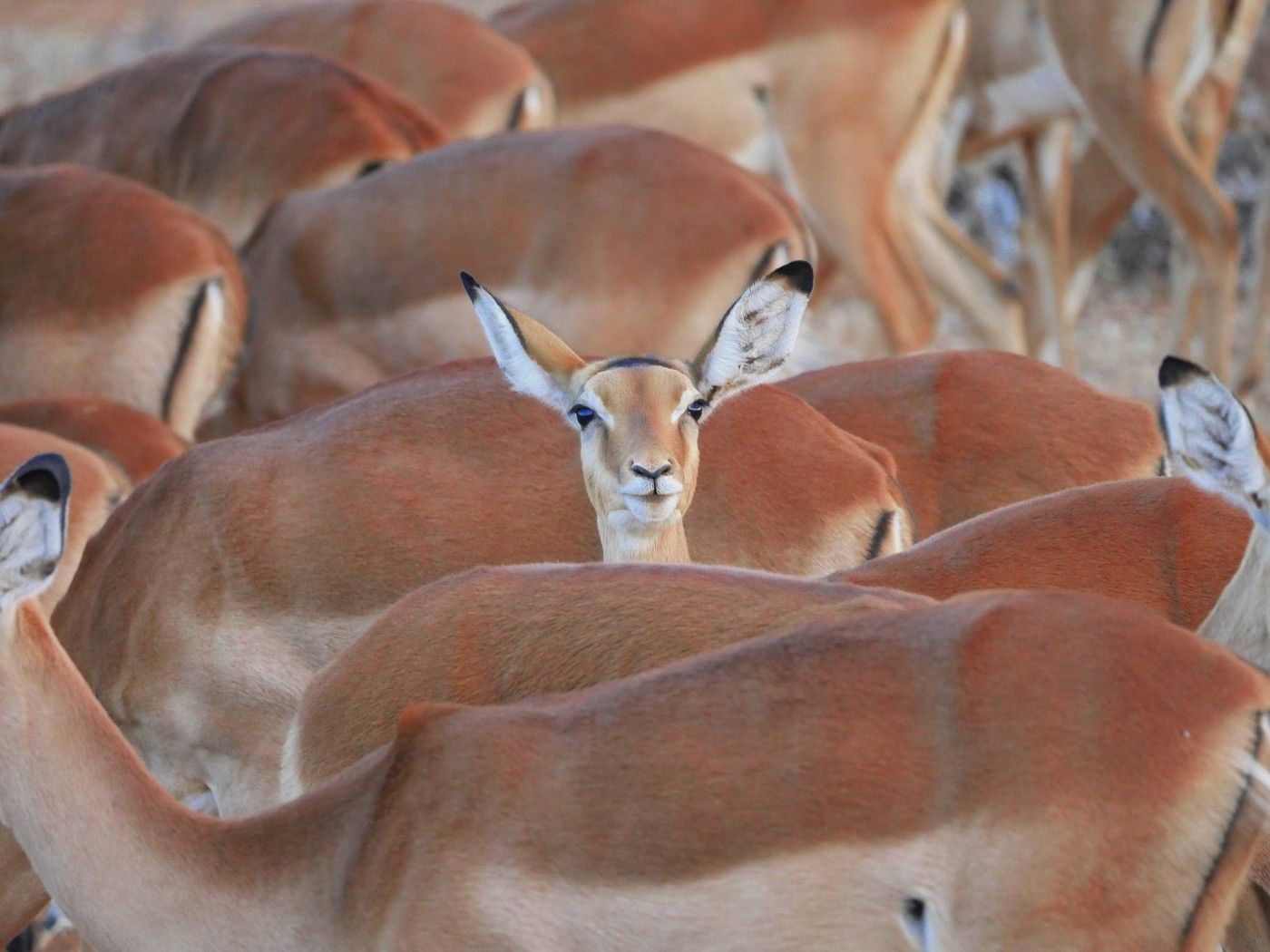Once you’ve figured out your niche, or the unique perspective you’re going to put on your workshops and training courses, you need to start working on how you’re going to to stand out from the competition. As a coach the best way to do that is to own your topic.
Your content should be inspirational. Your workshops motivational. Nobody captures an audience by blending in.
How you choose to stand out will depend on your niche or unique perspective. Remember every trainer or coach has an ideal customer who will love you for a reason: unique content, personality, uses and relates to the channels where you market your knowledge brand — ideally they’ll love all of the above! Whichever is the case you need to own your topic, to stand out.
This week we had the pleasure of chatting to Jason Little of Lean Change Management on how he created a global knowledge brand by taking the best elements and ideas from HR, Agile, Change Management and Organizational Development to create his own unique, stand-out workshops and content.
How do you start the process of owning your topic?
I generally noodle on a topic for a while before I write anything about it. More often than not the idea is sparked from something I observe in a public setting. Our organizations mimic society, but for some reason we try to coerce people through change by getting them to follow a process instead of a social norm.
It’s not natural for people to ‘follow a process’ as described in a PPT. It’s natural for us to adopt the general behaviour of the herd. We mimic ‘leaders’ in our social circles so when it comes time to change things, we lobby for our point of view and find people who feel the same. If enough people are upset with the status quo, things change. If there isn’t, nothing changes.
This week I was in Walmart and tried their new scanners. You come into the store, grab a hand-scanner, scan your own stuff as you walk through the store and then pay on the way out. Stuff like this inspires me because our personal lives change constantly. Coming to work and dealing with an annoying agile coach who’s trying to get you to be more agile is just one more damn thing you need to worry about.
We underestimate how much personal change in our lives affects how we approach change in our organizations.
I’ve been noodling on those ideas for a couple of years, and much like standup comedians, I workshop pieces here and there and eventually it becomes a keynote, or a series of blog posts.
How do you go about developing positive peer collaborations?
The last personal coach I worked with told me to stop thinking with my head so much, and to start thinking more with my heart. She also said as we walk through life there are these silver threads hanging all around us — the trick is to know which ones to pull on. That made me more self-aware of opportunities I might have previously passed up.
For me, personal fit matters more. I’ve had chats with some people who ask to partner me and who have a clear agenda they want to further, and that’s a bit of a turn-off for me. Sure people want to promote themselves and their business, but if I don’t feel there is a higher purpose under it, I pass.
All of my collaborations start with a gut feeling. If something comes up and I think to myself… “hmm, that sounds cool” I pursue it.
What content has been the most successful in making your brand stand out?
I’d rank workshops first. It’s sort of like the music industry. Bands go out on the road and gain interest. I think it’s the same in the consulting/speaking/workshop industries. The ideas are the easy part, the hard part is hitting the road and meeting people who want to learn more.
When it comes to organizational change, anyone can more or less google a bunch of ideas and come across as an expert, but if you’re not out there in the trenches, you can’t really get a feel of what’s going on.
Keynotes help as well and I like to make mine as entertaining as possible!
I’d rank success stories a distant last. It’s funny how people want stories and case studies to reinforce that the ideas are good, but when they read them they say “oh, that’ll never work here….oh it was easy for them because of…” and all sorts of excuses.
Are you multi-tasking, or do you tend to work on the ‘One Thing’ when you are immersed in a project?
I manage that very poorly and chaotically at the moment! I task-switch frequently but generally dive deep into each one. When you work for yourself, it’s a necessary evil until there’s enough sustainable income to hire people, whether that be part time or full time. I certainly don’t expect people to work for free so I generally do more myself than I probably should sometimes.
I do all of the administration of the brand which includes the accounting, facilitator management (of which there are 40 now!), social media presence, web development, content creation, marketing for me and the facilitators, training, coaching, one-on-one mentoring with facilitators and then there’s my other business with the Leanintuit folks — we do agile coaching and training so I still do a bit of client work to collect stories and stay close to the ground.
Of course I use automation tools to help streamline the administrative processes of my business. When you have 40 facilitators running over 100 workshops, you need help or you crash and burn.
I use Workshop Butler for many of these tasks: to list courses on my website, for workshop evaluations, and managing facilities profiles. Just the manual effort alone to list courses would equate to about 3000 hours, or 125 days, so Workshop Butler has definitely saved me from having to hire someone to manage logistics!
I guess the other way to say it is I’m a control freak so letting go is hard. That’s funny because in some fast-paced startups I’ve worked for, I talk about the danger of ‘founders-disease’ and it’s exactly what I exhibit sometimes!
Either way, the important things get done, and I do have quite a bit of work/life balance mostly because I don’t separate the two. Life is life. Lately I’m experimenting with a 3-day work week. No work on Monday’s and Friday’s, no nights or weekends and that has helped me focus more.
The best thing about….
Podcasting
Being interviewed! I think I suck at interviewing people, so unless I have a high-energy guest, I have a hard time with it which is why I put mine on hiatus!
Writing a book
Having credibility! It’s funny, I’ve been writing about the same things for almost a decade, but now that there’s a book it seems to create instant credibility!
Being part of a community like Happy Melly
FAN-DAMN-TASTIC! When I’m stuck, I can ask Happy Melly for help. When I have questions, I have access to people all over the world who probably have an answer. Plus I can give back to the community. I wish it had existed when I started with ‘agile’. Back then it was harder to learn, share stories and connect with people outside of your geographical area, but now it’s great!
Events
Hanging out with people and hearing their stories and “aha!” moments! In the almost-4-years I’ve been doing workshops I can only remember 1 horrible one that I could not wait to be done with. I think that’s a pretty good metric!
Having a facilitator base
Incredibly valuable, yet challenging. In the world of change there are so many ideas that having some type of brand consistency is difficult. My stance is helping facilitators grow their businesses. Different facilitators have different needs and experience and since we’re not a ‘company’ my challenge has been encouraging a culture that reflects the ideas and principles in the brand and Happy Melly overall.
I don’t want a rigid, rules-based network that forces people to comply to a set of standards, but at the same time, how do I avoid brand-confusion if our messaging isn’t somehow cohesive and consistent?
The brand wouldn’t be anywhere near where it is today if it wasn’t for the network of facilitators. Some join to be part of the group, others join to augment their existing training business, and others use it as their primary income and purpose. That diversity it what I love.
There are people all over the world with different backgrounds from agile coaching, to professional coaching and just about everything in between. I worry constantly that I’m not doing enough to support them, but in the end, I’m enjoying the way it’s going!

